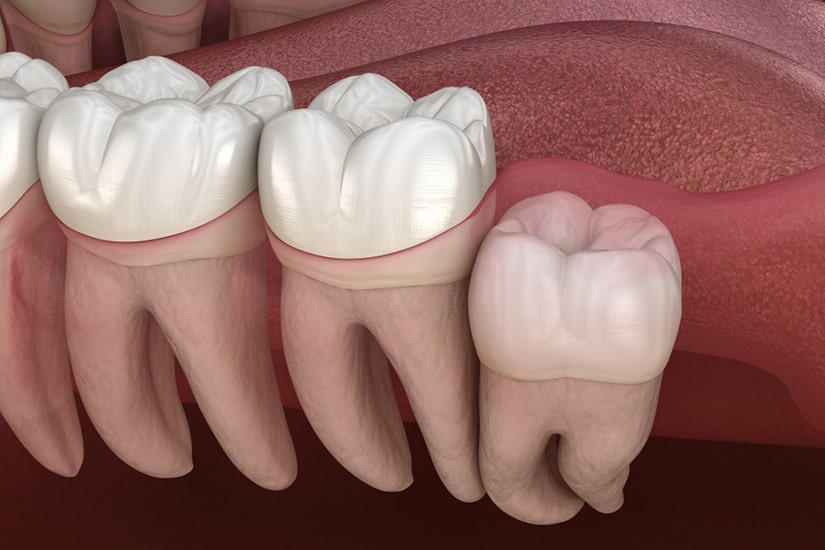Wisdom Tooth Extraction - Abu Dhabi - Dubai
Wisdom tooth extraction is a common dental procedure in which one or more wisdom teeth, also known as third molars, are surgically removed. Wisdom teeth are the last set of teeth to emerge, usually between the ages of 17 and 25, although their eruption can vary from person to person.
Here are some important points to know about wisdom tooth extraction:
- 1. Reasons for extraction: Wisdom teeth are often extracted for various reasons, such as:
- • Impacted teeth: Wisdom teeth may become impacted, meaning they don't have enough space to fully emerge or develop properly. This can cause pain, infection, and damage to nearby teeth.
- • Crowding: If there isn't enough space in the mouth, wisdom teeth can push against adjacent teeth, causing crowding and misalignment.
- • Tooth decay and gum disease: Wisdom teeth are more difficult to clean due to their location at the back of the mouth, which can increase the risk of tooth decay and gum disease.
- • Cysts or tumors: In some cases, wisdom teeth can develop cysts or tumors, which may require their removal.
- 2. Consultation and evaluation: If you're experiencing pain or other issues related to your wisdom teeth, it's best to schedule a consultation with a dentist or an oral surgeon. They will evaluate your dental condition, take X-rays to assess the position of your wisdom teeth, and determine whether extraction is necessary.
- 3. Procedure: Wisdom tooth extraction is typically performed under local anesthesia, which numbs the area around the tooth. In some cases, general anesthesia may be used if multiple teeth are being removed or if the extraction is complex. The dentist or oral surgeon will make an incision in the gum tissue if necessary, remove any bone obstructing the tooth, and then extract the tooth. Afterward, they may place stitches to close the incision.
- 4. Recovery: The recovery period varies from person to person, but it generally takes about a few days to a week to heal fully. During this time, it's normal to experience swelling, bruising, and some discomfort. Your dentist may prescribe pain medication and provide instructions on how to care for your mouth after the extraction, including eating soft foods, avoiding certain activities (e.g., smoking, using a straw), and maintaining good oral hygiene.
- 5. Complications and risks: While wisdom tooth extraction is a routine procedure, there are potential risks and complications associated with it. These may include bleeding, infection, dry socket (a painful condition where the blood clot that forms after extraction dislodges or dissolves prematurely), nerve damage, and temporary or permanent changes in sensation or taste. Your dentist will explain these risks to you before the procedure.
It's important to follow your dentist's instructions for post-operative care and attend any follow-up appointments to ensure proper healing and minimize the risk of complications. If you have any concerns or questions about the extraction procedure, it's best to consult with a dental professional who can provide personalized advice based on your specific situation.

